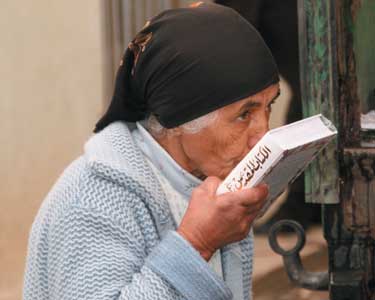Is the Obama Administration Softening on Religious Liberty?
 A U.S. commission on religious freedom says the Obama administration may be softening its stand on protecting religious freedom.
A U.S. commission on religious freedom says the Obama administration may be softening its stand on protecting religious freedom.
In its 11th annual report on global religious persecution, the bipartisan U.S. Commission on International Religious Freedom said since his 2009 speech in Cairo, President Barack Obama has been calling for nations to respect “freedom of worship” rather than “religious freedom.”
The change in phrasing could be viewed as a policy shift by human rights activists and officials in other nations, commission chair Leonard Leo said. The phrase “freedom of worship” allows restrictive governments to prop up a few houses of worship while denying the faithful basic human rights or permitting them to be gunned down while leaving places of worship without bringing the perpetrators to justice, he noted.
“If the United States cares about human rights, if we value international stability, if we are concerned about countering extremism, freedom of religion or belief must be a critical component of our nation’s diplomacy, national security and economic development objectives,” Leo said. “The current administration has been insufficiently engaged in promoting the freedom of religion … abroad.”
He said Secretary of State Hillary Rodham Clinton also has been softening her language on religious freedom, and the commission criticized both the Bush and Clinton administrations for not prioritizing religious freedom. White House spokesman Tommy Vietor disagreed with the commission, saying President Obama “has spoken clearly and unequivocally about his support for religious freedom,” USA Today reported.Â
The commission’s report also was critical of the Obama administration for not nominating an ambassador-at-large for religious freedom.
Established in 1998, the commission monitors religious freedom and releases an annual report recommending that certain nations be named “countries of particular concern” (CPCs) and suggests penalties. This year the commission recommended 13 nations be named CPCs—Burma, China, North Korea, Eritrea, Iran, Iraq, Nigeria, Pakistan, Saudi Arabia, Sudan, Turkmenistan, Uzbekistan and Vietnam.














































